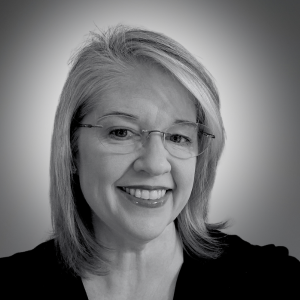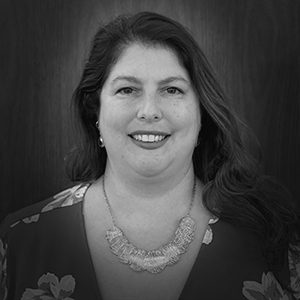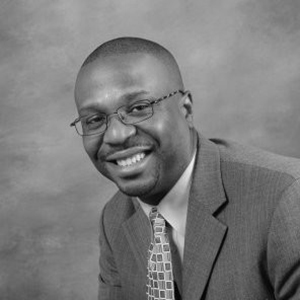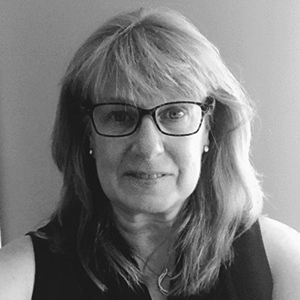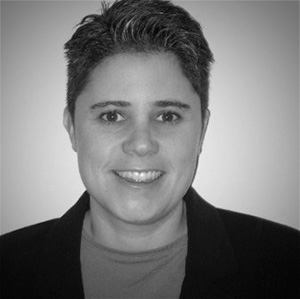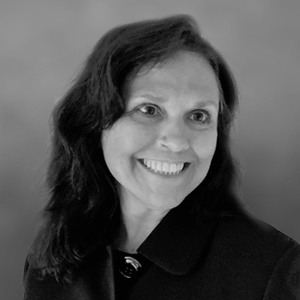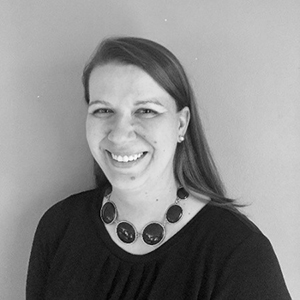Story: Alex Haederle | Production: Melissa Blum
Senior Human Resources Manager Tierra Terrell-Johnson met with us over Microsoft Teams to talk about her role in building Ripple Effect’s culture, how COVID-19 has changed the role of HR, and the importance of inclusion, equality, and education in the workplace and beyond.

Meet Tierra
She’s a Senior Human Resources Manager with Ripple Effect, overseeing our employee experience, recruiting, administrative, and operational HR functions. Tierra is front and center in shaping Ripple’s culture, from designing inclusive policies and programs to helping employees navigate their life situations. In the interview below, edited for clarity, Tierra talks about how the COVID-19 pandemic has changed her job and the role of HR in the workplace, tips and strategies for HR professionals, and how equality and social justice have influenced her approaches to education and building better work environments.
RIPPLE EFFECT: Hi, Tierra. What’s your role with Ripple Effect, and how do you describe what you do?
TIERRA TERRELL-JOHNSON: I’m a Senior HR (Human Resources) Manager. I lead our HR division and oversee employee experience, recruiting, administrative, and operational functions.
Can you break those down a bit for us?
Sure! Employee experience is how we engage and retain the people we have, by providing a combination of benefits and total rewards and setting up fun, interactive events like social activities. Recruiting-wise, it’s making sure we’re attracting great talent, focusing on inclusion, and finding individuals who align with our core values. Administratively, I make sure our systems are up to date and functional and review data and metrics to ensure we’re reporting accurate information. And operationally, it’s the day-to-day, putting myself front and center for employees and being present and available to answer any concerns they may have, from the pandemic to social injustice. It’s important to me to be an ear for people to feel heard.
On the pandemic, how has COVID-19 changed your job?
It’s been tough, I won’t lie. There’s been so much uncertainty around this pandemic and what it means—for the business, for staff roles, for their families. We’ve started to see this blending of home life and work life, and that’s made it hard for many people to separate the two. I’ve had lots of calls with people asking not only for advice, but for what’s available from a resource standpoint.
What have been your top priorities, in managing a company-wide HR response to the pandemic?
High level, I’ve focused on writing new policies, understanding Department of Labor and CDC guidelines, and ensuring compliance around Occupational Safety and Health Administration (OSHA) requirements. In tandem, it’s been planning for a return to work, ensuring everyone has a safe environment to come back to. And of course, managing the expectations of different staff populations, since we have people working from all over, and every situation varies.
Have you had to design and roll out new policies?
Yes, definitely. We’ve developed new leave policies outside of PTO (paid time off) related to COVID, based on the new federal-level allowances for small businesses. We’ve expanded internal policies to support staff needs, like phone and technology allowance options to make it easier to work from home. For staff who have dependent care funds, I’ve helped guide them to suspending those contributions because COVID-19 is a qualifying life event. And we set up a leave transfer program so that staff who may have PTO can donate it to a ‘leave bank’ and help those who need extra leave.
Is there a guiding philosophy you’ve followed when researching, developing, and implementing these new policies?
I look at it this way: People are in different phases of life, and everyone has different needs. Some employees may have children, and no daycare or school at the moment, which typically ease the load. They’re going through a lot, like how do I balance this meeting with my toddler running around? My goal is to make sure people understand what’s available and be an advocate for everyone’s well-being, mentally and emotionally.
Tell us about some of the biggest challenges or obstacles that you’ve faced during this time.
Keeping up with news and what’s changing with COVID-19—that’s been a challenge, because data and guidance changes so rapidly. Initially, public health experts said masks weren’t necessary, then that quickly flipped once new information came out. (We put together and mailed care packages to every employee in April, featuring two masks, hand sanitizer, and a tool for contact-less button-pressing.) I read everything I can get my hands on, to make sure I’m prepared for any conversation. Drafting and communicating new policies has been hard, but invaluable. And really, the role of HR has changed through all this.
What do you mean by that? Are you interacting with employees differently?
Human Resources is stepping into a new realm. Historically, it’s been perceived as a paper-pushing, report-producing administrative function, but today and during this pandemic, HR professionals act almost as wellness advisors. And that’s a good thing! I’m diversifying what I’m reading and learning, and training myself in different ways so I can provide advice to our staff, from mental health to wellness, work-life balance, and inclusion.
How have you changed your approach in managing your team?
Technology has been a big one. I’m used to being in the office, dropping in on people, and fly-by conversations to check in on everybody. But with everyone teleworking, that connection fundamentally changes when you can’t see people. I’ve become a super-user of Microsoft Teams and Asana; we integrated Asana into Teams so we can create tasks on the go and save time. Our team has made Asana work for us in new ways, as a short, small task tracker in addition to larger project management. And there’s fun stuff, too: using Teams’ ‘praise’ feature to make sure everyone knows we appreciate the great work they do, sharing goofy GIFs and memes. Sometimes we have meetings just to talk about how we’re doing as people. Getting work done is important, but sometimes I need a video meeting to make sure everyone looks okay.
Let’s zoom in on HR for a bit. What are some of the skills that make a great HR professional? Give us a short list.
Strong interpersonal skills and emotional intelligence: being able to connect with people on a human level and put yourself in their shoes. Empathy is big, too. We don’t all have a monolithic experience, so learning and caring about what people are going through goes a long way. Those aside, being responsive, organized, open-minded, and an active listener are all essential skills, since we deal with so many different types of people.
Being business-minded and strategic is also crucial. It ties back to my comment on HR stepping into a new realm: Today, HR professionals need to have a business sense so they’re doing the work of both sides: being an employee and culture advocate, but advocating for the business as well.
What are three practical tips or strategies you have for HR professionals during COVID-19?
1) Strengthen your network. Use platforms like LinkedIn to find groups that are talking about what’s going on and capture different perspectives. People in adjacent industries have great ideas and information, resources, and best practices. I’m a member of a Montgomery County HR group, so it helps me so much to hear what people are doing (and what’s working) locally. I’ve started to build a facilities and engineer perspective because I’m making sure our building is up to par before people go back.
2) Keep up with what’s going on. This can be hard because all sorts of white papers, reports, and webinars come out and it’s impossible to read everything, but make sure you find sources you trust and use both free and paid resources to track how the HR industry is evolving around COVID. A lot of things we’ve usually separated from the workplace have now entered the workplace, so it’s vital to stay abreast of what’s going on. If someone pings you and asks a question about an HR policy, and you can’t answer it, it’s a bad look.
3) Be responsive. Make sure you’re paying attention within your organization and creating forums for asking and answering questions. I hold virtual HR office hours, and I’ve been pleased to see that people are using those more. In office hours, we have conversations about benefits, how people are feeling, what the company is doing to support X, Y, or Z, and anything else. Protect time to have conversations with people—employees are your greatest resource, and without them you can’t have a strong business.
Tell us about a Ripple Effect HR or employee engagement effort that you’re particularly proud of.
Honestly, the way we’ve shifted to accommodate what’s going on right now amid the pandemic has been amazing to see. We already had regular planned activities, but we’ve made a bigger push to have more virtual events like coffee hours, happy hours, a bake-off, a virtual walking challenge, an upcoming scavenger hunt. I’m proud of my team for being able to look at events we have and finding ways to make them virtual, engaging, and most of all, fun.
Do you have a mentor? Someone who’s influenced or encouraged your career in a special way?
Yes! Her name is Frances Huntley-Cooper, and she’s a mentor and alumna of my college sorority, Alpha Kappa Alpha (AKA). Fun fact: Frances is the first Black mayor of Fitchburg, Wisconsin, and she’s the best. She’s extremely active in politics, community, and family work, and has been so encouraging towards me. Frances helped me get my first job, taught me basics of how to operate as a professional, and guided me in ascending in my career. My biggest lessons from her have always been, be prepared when you walk into a room, focus on education, and build a strategic business mindset.
Alright, we want to end on a bit of a different, but relevant note. Recently, social justice, activism, and equality in America have intersected, transcending cultural conversations and entering many workplaces. Has that affected how you approach your job at all, or changed what you think workplaces of the future need to look like?
I’m going to go a few directions here, and start with Ripple Effect. When I first got here in 2016, I liked the vibe. I liked the people, and I liked the opportunity. Since then, it’s been great to not have barriers at this company to prevent me from moving up, and I’ve helped instill that same mindset of equality and inclusion throughout our team. Jackie Helfer and I have built unconscious bias awareness into interviews, and we make sure we’re always seeking out talent pools that might be underrepresented.
But while I’ve been here, I’ve noticed how we’re very intentional about what we do, like releasing a recent company statement and specific commitments to further equality, culture, and inclusion. We took our time with that, to craft specific policies and messaging to back up our commitments. I don’t want to be the company that just does what they do for external perception, then it’s back to ‘business as usual.’ I don’t want that; I want all of our practices and policies to be where we make lasting change—long after I leave Ripple and the next person comes in, we’ll continue to be inclusive and intentional, with promotions, mentoring, and education.
Are there particular experiences that shaped your values on activism and social justice? And what is Ripple Effect doing to support education on these issues?
Yes—back to my sorority, AKA is one of the ‘divine nine’ of historically-black Greek fraternities and sororities, and a lot of my personal activism was instilled in me through that. It’s easier to understand and relate to what’s going on when you’ve always been aware of that fight.
But it’s hard to have conversations today about social justice. Some people are hesitant to speak up, and others may not have a voice. So Ripple Effect is providing avenues like new professional development hours that the company has funded for employees to purchase books, subscriptions, and training, and more to educate themselves. We’re being intentional in supporting those efforts.
Thanks for sharing that. Last question: COVID-19 will end at some point, and we’ll go ‘back to normal.’ What is one thing that this experience has taught you, or one policy you implemented, that you want to extend when this is all over?
I think we all know that it will be a ‘new normal’ that we embrace going forward. There are so many things we haven’t even realized will change, based on what we’ve gone through in this pandemic—interactions, physical proximity, shaking hands, those will look different. Specifically, I want to keep in place Ripple Effect’s extended professional development policy, related to our company commitments on equality. Education is fundamental and gives people more knowledge, but more importantly, a new vocabulary to discuss what’s going on.
The professional development policy specifically covers social injustice, so people can understand how did we get here? I’ve seen lots of Ripplers taking advantage of this, but let’s expand it—there’s a whole spectrum of identities and groups, and there are many people that might not feel included. It’s about development and growth in your career, but how you develop and act with others within this organization is what makes us special. Building that culture that allows staff to feel engaged and enabled, that’s the future I want to help shape.
Want to ask Tierra a question about HR, employee engagement, or career advice? Reach out! Leave a comment below and we’ll get in touch.




